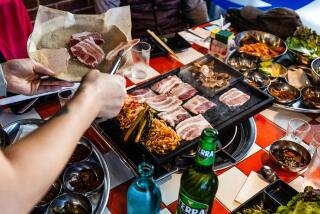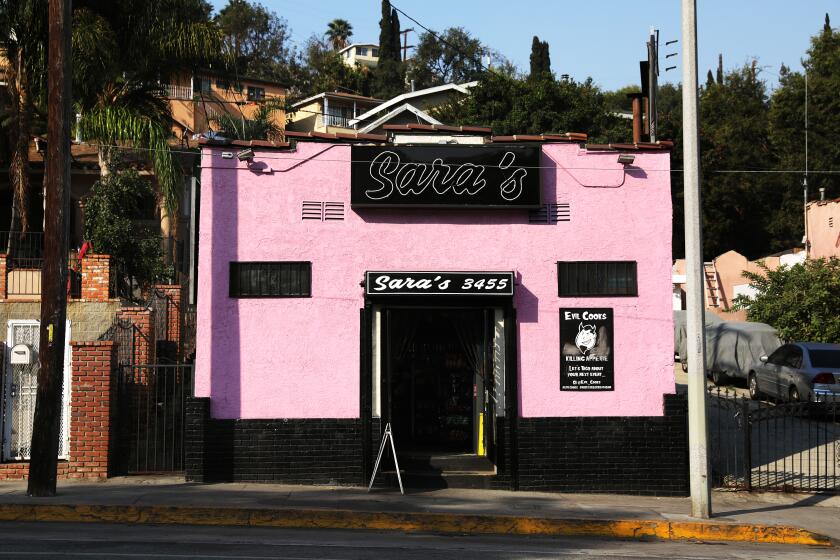‘Barbecue Crossroads’: To really understand barbecue
Barbecue – and by that I mean real barbecue, meat cooked long and slow near (not over) a smoldering fire, until it is tender enough to fall to pieces but still moist enough to be delicious – is a discursive art. It takes as much time as it takes, and things will happen, some of them planned, and there will be ample opportunity in between for conversation, music and philosophy.
The current rage for commodifying barbecue – turning it into a series of 10-best lists and must-visit places – is useful for the consumer, but only in the short term. To really understand barbecue, you have to surrender yourself to its languorous current.
Or, you can pick up a copy of Robb Walsh and Rufus Lovett’s new book “Barbecue Crossroads,” which does much the same thing but in a handy armchair format.
Walsh is a well-known Houston-based writer on Southern food, the author of 10 previous books and the restaurant critic for Houstonia magazine. Lovett is a truly marvelous photographer whose work has appeared in everything from Texas Monthly to Gourmet.
Together they embarked on a journey many of us have talked about over a pile of ribs and second frosty mug of beer, but few of us have ever actually undertaken – a barbecue tour of the South and mid-South. They loaded up a Honda Element with notebooks and photo equipment and took off for anywhere barbecue was served between West Texas and North Carolina.
The road was long and winding and certainly anything but straight and narrow. It stopped at brightly lit pits in the big city and little shacks on dark country roads. They visited church suppers and juke joints. Walsh and Lovett were embraced by some and just flat chased away by others (barbecue cooks can be a cranky lot and seem to be alone among Americans in not starving for publicity).
Along the way they sampled everything from the restrained German-Czech-influenced barbecue of the Texas Hill Country to the deep blues of the Mississippi Delta, from the white-sauce chicken of Decatur, Ala., to the disappearing whole hog of Lexington, Ky. Each style is treated with the respect it deserves and placed knowingly in the context of the culture from which it comes.
Sadly, they also documented what may well be a disappearing way of life. Time after time they recount the times their search for real barbecue, smoked over wood in pits, proved futile as even some very well-known places are switching to electric smokers, done in by convenience, the cost of wood and the picayune criticisms of local health departments.
In the end, you feel privileged to have been invited along and a whole lot smarter about not only smoked meat in all of its many guises, but this lovely and confounding part of the country.
ALSO:
Bigmista’s Barbecue comes downtown
Jonathan Gold’s favorite Baja-style tacos
Roy Choi opens a smoothie shop in South Central
More to Read
Eat your way across L.A.
Get our weekly Tasting Notes newsletter for reviews, news and more.
You may occasionally receive promotional content from the Los Angeles Times.











